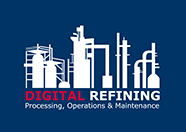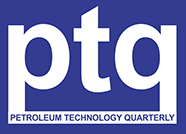Melissa Clough Mastry - BASF Refining Catalysts
Modesto Miranda - BASF Refining Catalysts
The FCC industry is faced with changes in both feed quality and product economics on a continuous basis. From imports of shale oil into Europe to resid feed imports becoming heavier, the need for flexibility on the FCC is growing. Furthermore, as petrochemical integration and petrochemical markets strengthen, FCCs are faced with shifting product economics, including changes in gasoline and liquefied petroleum gases pricing. These shifts in economics increase the need for product selectivity flexibility. To this end, FCC catalyst technologies need to adapt to the changing marketplace. This presentation will focus on refinery FCCU case studies that touch on these trends. The catalyst technologies implemented in these case studies that imparted maximum flexibility will be described in detail in this presentation with a focus on operating parameter impacts and FCC unit profitability.
 Melissa Clough Mastry is the Technology Manager for Europe, Middle East and Africa, BASF. In her current role, she is charged with catalyst technology developments & introductions and for providing technical service to our refining customers. Melissa completed a BSc from the Univ. of Florida, a Ph.D. from Texas A&M Univ., and an MBA from the Univ. of N. Carolina.
Melissa Clough Mastry is the Technology Manager for Europe, Middle East and Africa, BASF. In her current role, she is charged with catalyst technology developments & introductions and for providing technical service to our refining customers. Melissa completed a BSc from the Univ. of Florida, a Ph.D. from Texas A&M Univ., and an MBA from the Univ. of N. Carolina.
 Modesto Miranda is a technical service manager, refining catalysts for Europe, Middle East and Africa, BASF. He has a BS degree in engineering. Mr. Miranda has more than 20 years of experience in unit modeling, optimization, troubleshooting and FCC and refinery operations. Modesto has held various refinery based engineering and management/leadership positions.
Modesto Miranda is a technical service manager, refining catalysts for Europe, Middle East and Africa, BASF. He has a BS degree in engineering. Mr. Miranda has more than 20 years of experience in unit modeling, optimization, troubleshooting and FCC and refinery operations. Modesto has held various refinery based engineering and management/leadership positions.


















